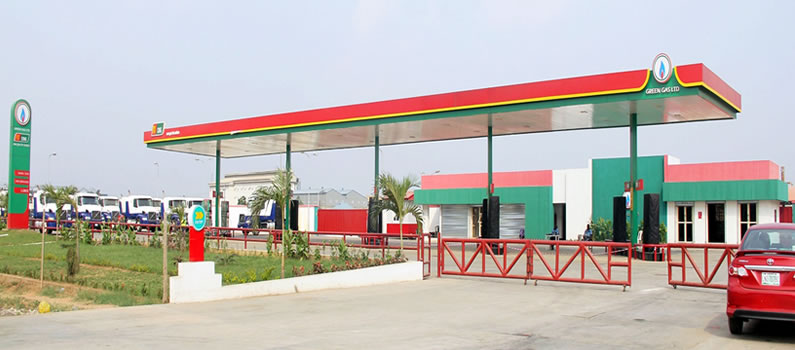INDUSTRIAL LPG USE SEEN LOWERING MANUFACTURING COST
Increased commitment using the various Liquefied Petroleum Gas operations in manufacturing processes will rescue Nigeria’s comatose manufacturing sector, help businesses cope with skyrocketing energy costs and promote cleaner energy by cutting fossil fuel emissions, industry stakeholders have said.
With annual LPG production capacity of 4million tonnes, Nigeria currently consumes about 350,000 tonnes, according to the Nigeria Liquefied Petroleum Gas Association. This is fuelling calls for wider adoption of the Nigeria Gas Master Plan to deepen LPG usage in West Africa’s economic super power.
‘Nigeria is one of the largest producers of LPG in Africa, yet its per-capita consumption is one of the lowest on the continent. While annual production stands at four million tonnes, the county’s total yearly consumption is just 350,000 tonnes. More should be done to encourage industrial LPG use’ said Dayo Adeshina, president of the Nigeria Liquefied Petroleum Gas Association (NLPGA).
Oil and Gas energy consultant and managing partner of Sterling Partners, Isreal Aye said the Nigerian Gas Master-Plan which is premised on the assumption of a vibrant and viable gas producing sector is not being implanted.
‘Nigeria’s Gas Master-Plan is therefore constrained by the low level of developmental activity in the industry’, he said, calling for a change if industrial concerns must benefits.
Chuks Nwani, legal practitioner and energy analyst, says unless government gets it right in terms of fiscal policies for gas, more industries may be reluctant to adopt the clean energy resource.
‘I think it is time our government gets its priorities right, in terms of fiscal policy in the gas market. It is not enough to provide low costs gas to Legacy Power Plants only, while raising commercial gas which will aid local production to unreachable prices. It is still Nigerians that will buy those products manufactured using high gas pricing and there will still pay the price one way or the other’ he said.
While domestic gas pricing under Domestic Supply Obligation which is mainly gas supplied to the Legacy Power Plant is priced at $2.40/mmscf, commercial gas which is gas supply to manufacturers for running of their operations, including generation of their own power, is currently priced at $7.38/mmscf and most domestic gas consumption is used for industrial and commercial concerns, including private power generation.
This situation has impacted industries negatively, increasing manufacturing costs with a consequent rise in the prices of goods and services.
In a recent note to BusinessDay, Renaissance Capital, a frontier markets investment bank, reported that most companies were considering increasing product prices by 10 to 20 percent in the second half of 2016 to offset the impact of Naira devaluation on imported consumer goods and higher inflation.
<
Some industrial firms in the food, beverages and conglomerates sub-sector have left Nigeria due to the difficult business environment. Recently, manufacturers said capacity utilisation in the sector has dropped to a record low of about 50 percent, on the back of inadequate power.
‘Power is a major cost for manufacturers and they will explore opportunities where it is cheaper to produce their goods’.
Conversion of diesel generators to gas is a viable alternatives but it not cheap for a small scale industries, while gas supply has equally been hampered by continued destruction of oil and gas facilities by militants’ said Frank Jacobs, President, Manufacturers Association of Nigeria (MAN).
During a visit by the Nigerian Gas Association officials to NIPCO PLC, Venkatapathy Venkataraman, Managing Director of NIPCO PLC, called for a deeper adoption of gas which Nigeria has in abundance.
‘This will serve the country well in terms of their utilisation for power generation and as fuel for cooking and transport, which would save the country foreign exchange used for fuel importation.’
Many companies in Nigeria like NIPCO and Linetrale, are offering creative solutions for industries who wish to increase gas adoption. There are now massive gas storage facilities with attendant distribution networks through scores of refitted gas trucks and virtual pipeline solutions.
‘Virtual pipelines can be used to transport compressed/liquefied natural gas by various modes – highway, railway, waterways and the sea through technological means such as Compressed Natural Gas (CNG), Liquefied Natural Gas (LNG), Gas-to-Liquid (GTL) and Gas-to-Wire (GTW)’ said Aye.
He added ‘Despite the foregoing, pipeline gas is still the cheapest source of gas and utilization of the virtual pipeline must not be treated as a steady and definite alternative but as a faster way to tale the natural gas to places where there is no technical or economic viability for the conventional pipeline.’




